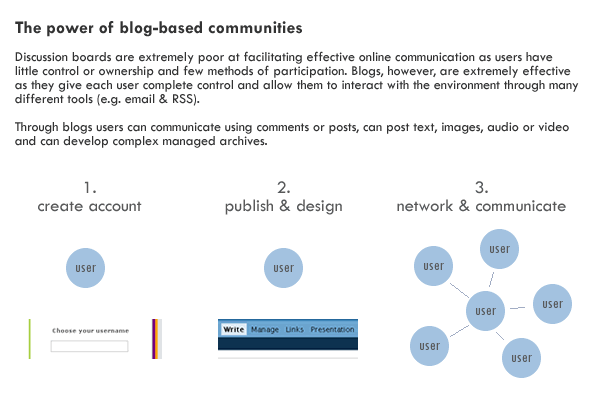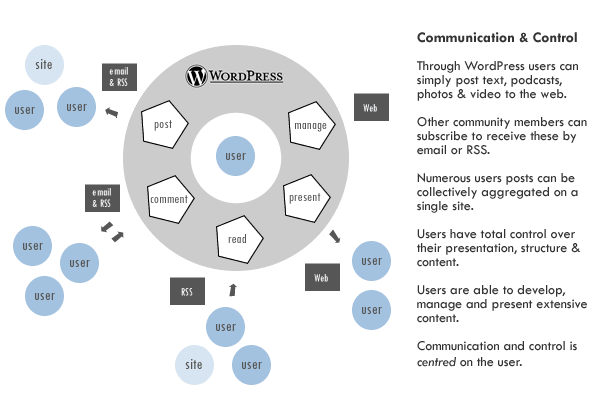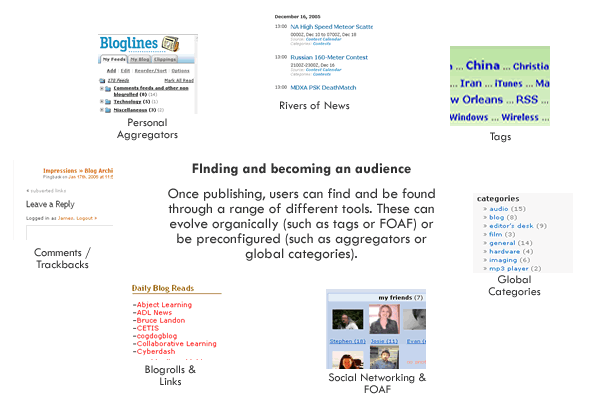Have been having some excellent conversations around the uses of blogs in community and organisational contexts of late. Especially so with Andrew, Mike & David and it was David who suggested that we needed a simple way to explain exactly what community / organisational blogging and blogging as a whole is… to those who maketh the decisions ;)
So, as a first draft I’ve come up with the following three slides, designed to be shown rather than sent (possibly with some live demo at the same time) so I’ve added a little commentary.

This is fairly obvious, the basic point that I want to make is the straight off the bat difference between blogs and discussion boards and how very simple blogs are. Obviously in an organisational context you wouldn’t even have people signing up, so something along the lines of just publish & communicate” might work better here… but if you’re talking about a community then obviously you’re going to have sign up. Decided not to bother going into too much detail about why you’d be doing this in the first place… I guess if you can’t convey why you want people to be communicating online then you’re probably best off stopping here ;)

This is fairly obviously the meat in the sandwich (or should I say protein). It’s basically my answer to “What is a blog?” question together with some explanation. The black boxes represent the primary way in which users would engage with these technologies. Obviously I’ve left out ‘web’ for the first 3 (going anti-clockwise) – this is to focus on the how people get involved rather than what they do once they are involved.

Finally I wanted to really bring it home around how organic and pre-designed communities can form (and be ‘formed’), the huge number of different tools and approaches that can work for this and the absolutely critical nature of this part of the process. You can have the best ‘blogging’ system in the world but without this stuff you might as well just give them open office. Heh.